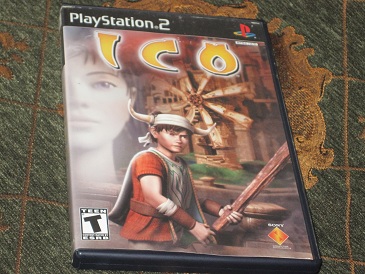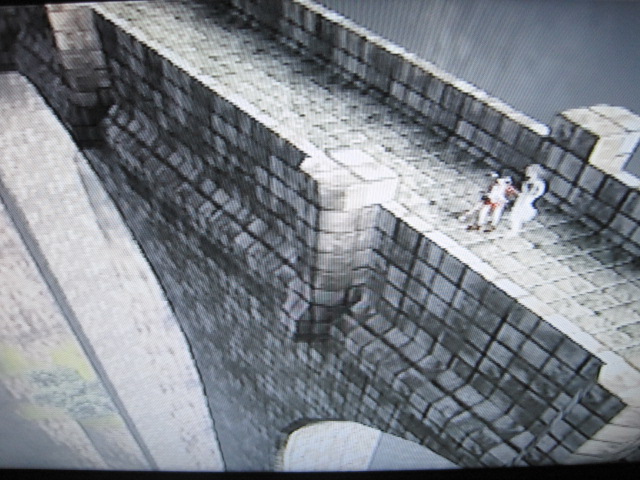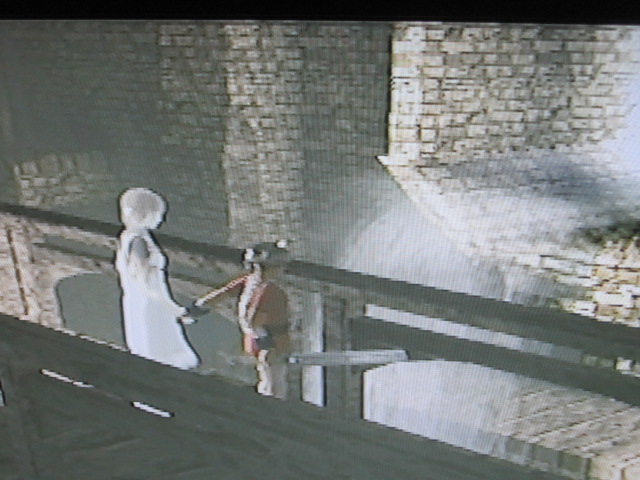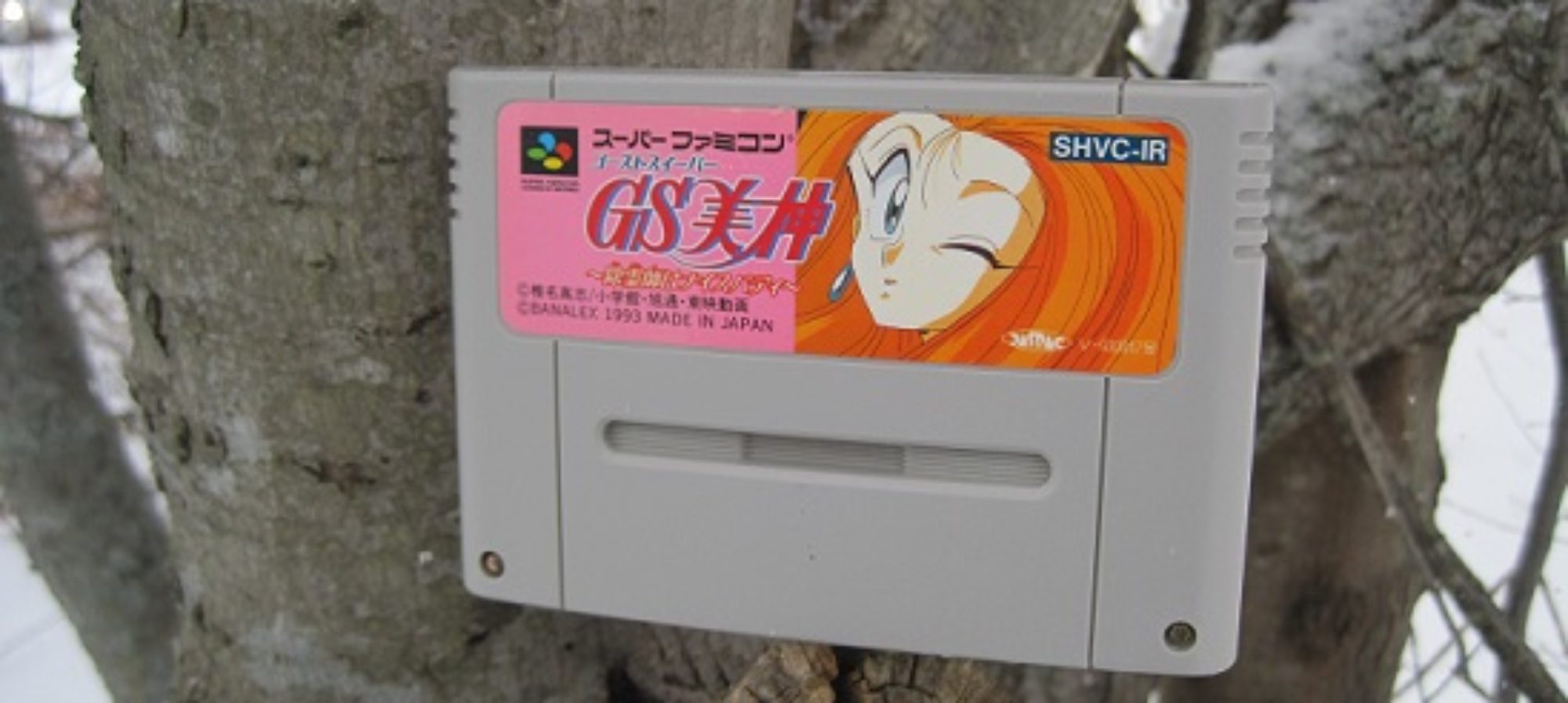You need to commend the ability to say so much with so few words. A minimalist canvas allows the audience to paint their own conclusions and inferences. The opposite is a canvas that is paint-by-numbers, the audience is fed the information they need to paint these conclusions. Both can be enjoyable, and it is a feat to make either end of the spectrum work well. I am going to laud minimalist storytelling but I do not discount the opposite. The simple truth is that they both need to be done well.
I play plenty of games that are all about instant gratification, and they are some of my favourites. I count certain titles with a very overt narrative as some of my favourites. However, sometimes you just want to just become engrossed in the narrative and let it bloom naturally. ICO quintessentializes this mindset.

For many of the games I grew up with, storytelling was an afterthought. It was about “here is the premise, now just play the game.” We drew our own conclusions, thought of viable reasons for each new scenario, and humanized our onscreen avatars. ICO is the natural evolution of this philosophy, where a premise is introduced without volumes of exposition but storytelling does matter.
It’s a union of player input and aesthetic suggestion. Minimalist design belies how intricately the struggle is presented. The premise is simple at outset: ICO is left for sacrifice, he meets the captive Yorda, and they must escape an expansive and labyrinthine castle together. He must keep her safe as she is absolutely necessary for his escape. However, she is not nearly as mobile as ICO, forcing him to breach new paths for their ultimate exeunt.
Lateral thinking is often required by the new player on the spot. Whether it is deciphering the solution to one room’s puzzle or trying to determine if it is better to stand and fight or just push through to the next room with Yorda in tow. In this way, the gameplay drives the events in a very theatrical manner. There is no surrender of one element for the other, they work in harmony to drive the experience for the player. I believe when I revisit this game, the elements will flow together in a very cinematic sense.
This is an interesting factor, because many of the puzzles in ICO will not deter me on a replay where some were legitimately confusing or at least gave me pause on the first play through. The gameplay is not so visceral that I could drive my enjoyment under that usual metric. Instead, I think I will come to see ICO as one of the more poignant stories I could revisit. It’s a unique beast, and ultimately that’s what fuels me these days.
It could come as a surprise to some folks that I am lauding the storytelling in this game. Most folks who know me know that I consider story a secondary matter in games. This might be a side effect of growing up with mostly arcade-style games. However, I also think a major factor is that stories are often overwrought, pandering, and patronizing. Believe me, when it’s good I care about it.
I think when a friend convinced me to buy Shadow of the Colossus a number of years ago now I started to change my tune. This was wholly opposite of the pandering cookie-cutter games I had started to expect. So much interpretation was left to the player. It’s like there were key frames in place, and we were animating everything in between. It was absolutely refreshing.
This is why I ultimately decided to purchase ICO: because I enjoyed Colossus so much. However, I knew it would be of the utmost importance not to compare the two directly. They are different creatures that share many characteristics but ultimately they can stand alone as two very exclusive experiences.
I had come to realize that while I am rarely concerned about storyline, I do like characters and plot progression. I like how the story is told. You could have the magnum opus of a literary genius at your disposal. But it will still fall flat if it is not put into motion correctly.
I was not disappointed with ICO at all.
Keeping exposition to a minimum allows the game and the player to coalesce, you just have to be open to it. For a game like ICO or Colossus, you need to put conventional expectations about story aside. You will not enjoy this aspect of the games unless you allow yourself to be awash in its tide. You need to just play.
And you will begin to develop expectations and feelings for the characters. The raw sense of isolation in ICO means that between yourself and Yorda you really have nowhere to turn. As the proprietor of the castle steps up her game to recapture Yorda you begin to feel anxious about leaving her behind. Not just because you know she will be attacked, but because you don’t if you will be able to get to her quickly enough to save her. While I often inconvenienced myself to do so, I kept her with me as much as possible.

I got the feeling that the castle was alive. A creature at its terminus, its final death throes as its body breaks down around itself. It is remarkable architecture marred with the misuse and disuse of the ages. The castle’s ghouls are its tendrils grasping out in final indignation – desperate to regain the one thing that could sustain it.
The castle itself made me very happy. One thing that I often rag on in games with 3D environments is that that extra dimension of freedom of movement is typically squandered. How often in other titles have you walked into a room, seen no exit, then simply looked up and shot the switch? Too often. ICO takes its use of space very seriously and this is one of the factors I appreciate the most about the game.
Sure, you still need to ‘look up’ but you also have to look down. And all around. Then you have to get out on those ledges or chains and actually see where they can take you. You’ll also want to learn to where to dismount without the fall killing you! The scale of the castle is impressive and movement within it is not taken lightly. The heights are sometimes dizzying and imposing, but once you start into the environments you will find your way through. It’s again, very intricate.

While camera angles are set in such a way as to frame the scene, there is still a great deal of freedom involved where you can swing around and zoom in and out, as well as track Yorda. The camera gets flack sometimes, and it is pretty touch at times. However, once you’ve used it for a little while it becomes second nature.
This is good. Since the game often forces you to leave Yorda behind even for a few moments, you will want to be able to note the locations of the inevitable ghouls and their portals when they show up.
I should talk about the combat in the game. Essentially, the Queen of the castle wants to recapture Yorda to her own ends. She sends aetherial black ghouls after our intrepid pair to capture the girl and drag her down into a portal. While ICO has no life bar to be killed by ghouls, he can be sent sailing. If they drag Yorda fully down into their portal – he will die. He cannot escape the castle without Yorda, so game over little dude!
Your weapon for most of the game is a stick that you find in the castle. ICO is not strong and he must hit even a basic ghoul many times before it will be destroyed. For much of the game this makes the choice between flight or fight imperative, but you can usually fight it out. He gains new weapons much later in the game that really cut through the ghouls with impunity. But for the most part he’s pretty weak.
ICO is not a powerhouse and Yorda is frail, and I love it.
This may sound kind of strange at first, but this helps sell the idea that the journey through the castle is a real struggle for both characters. I’ve played so many games focusing on instant gratification that it is, again, refreshing to play a game where you are legitimately at a disadvantage at times. Not to mention that even when you are equipped with a sweet sword you can be feeling pressured to come to the rescue because she’s been carried away and the rest of the bad guys are flocking all around you.
They are still strong. Their strength is in raw determination and within their need for each other.
And while sometimes it seems like it would be more convenient if Yorda had the physical strength to climb chains too, the animations between ICO and Yorda as he struggles to bring her along really impression the two characters to you. I do not get sentimental about games, but I was often concerned for their welfare, ha ha.
It seems surreal to even think this but I may end up getting the PAL version of ICO down the road because it has added content and I’d really like to play through this again in the near future. It’s certainly not for everyone, a common theme on this blog I guess. But if you can find a copy of the game I highly recommend playing through it. And if you’ve played Shadow of the Colossus and not ICO, divorce the two games in your mind now and get started on ICO!
I build my collection or at least the cornerstones of my collection based on unique gameplay experiences. ICO came out quite some time ago now, but it does provide this desired function for me, in a big way.


I think I’m going to wait to get the ICO/SotC collection on PS3 before I play this. You know I could easily play it now, or even a few years ago, but at this point I think I’ll just wait.
Well… I grew up with games with minimal storytelling also, but I like story-focused games, as well as non-story-focused games. One of the nice things with little to no story is you don’t need to know the specific language to enjoy.
ICO seems as atmospheric as SotC, so I’ll take a guess and say I’ll most likely like it.
Incidentally, the picture of Yorda getting taking away by an otaku surrounded by policemen always made me lol.
Wait, did you clear Shadow of the Colossus? I was actually talking with Burley about it the other day but I don’t know if ever mentioned it to you. Which is weird, because I was fangasming my whole first playthrough.
I love the idea ICO presents that the castle is your “enemy” to escape. When I first played the game, one of the earliest solutions is to reach down from a ledge to pull Yorda up. I didn’t know I could do this so I spent a half hour navigating ahead without Yorda, trying to find some kind of shortcut or switch to get her past that point. I was making wild jumps to far platforms and generally doing the wrong things… the castle was beating me. The small solution like that is a rite of passage for this game it seems. Learning to care for Yorda and help her do what she can’t.
Like Shadow of the Colossus, ICO is also burdened by an unavoidable sadness in its scenario. The gameplay itself isn’t particularly fun, but more intriguing to the mind. Good shit.
Ha ha, the puzzle that got me was the first time you had to use bombs. I wasted so much time on that. First of all, I didn’t know you could carry them between rooms. Second of all, I thought they were flower pots. XD
Shit, there were bombs? It’s been too long, I guess.
Yeah man, but they weren’t very ubiquitous. I can only think of a handful of rooms they were even present.
Backing up a bit I should have addressed this in my original reply but the “castle as an enemy” aspect was my feeling too. Rather than just the Queen in her castle, but that the Queen was the neural centre of the castle. I guess it’s like Ico was this pathogenic bacterium in the gut of the castle and it was sending its white blood cells out to get him. I’m sure that comparison has been made before. But I could see why, because I impressioned myself into thinking the castle was “alive.”
Yeah, I cleared it. Certainly one the best PS2 games.
You mentioned it, lol. I remember discussing how much I hated the turtle-like Colossus because I couldn’t figure out how to beat it, and you getting stuck on it, too, lol.
Ah yeah, coming back now. The tortoise _did_ give me pause the first time because I had trouble lining him up over the geysers iirc. There’s some pretty tricky ways to take him down fast tho. But I <3 him, he is one the best~
The game sounds great and we’re lucky in the long run that it came out on the PS2 Double instead of Single. Last gen 3D games finally achieved consistent decency. It’s slick. Slick!! fft! Fft! Perhaps, though, we’d be one more Team ICO title the richer by now if had o’ came out for the Single.
I don’t have much to say about the games directly as I haven’t had the pleasure. I played a demo of SotC which for all the chopsy framerate (at least of that demo) seemed amazingly atmospheric. The sleeping princess and freedom to roam made my AoL sense tingle, and that’s a very good thing.
Reading your article I started to wonder if the PS2 is my third favorite home console of all time. It really shocked me with its library of gems when PS1 was one overrated shitepile after another. And there are still so many PS2 classics I have yet to play!
When I came to my senses I simply concluded that PS2 is the greatest home console post-SNES. Dreamcast had a good but short run, Gamecube had three brilliant years and guttered out, Xbox should never have existed and can lick the cookies. And the less said about the SNES-DC gap (e.g. the scuzzy azzcrack between two luscious cheeks of decent gaming) the better.
Looking forward to playing ICO and NICO one day and sharing some more relevant thoughts with you at that time! 🙂
Ah aha you know how to shoot right for the core dude. I wouldn’t draw too too many correlations between AoL and SotC. Of course though, maybe now I will :O.
I think Ico being of solid quality is a decent trade-off for Last Guardian coming later. Definitely give them a roll some day, ICO _and_ SotC.
I have talked about Shadow of the Colossus at length elsewhere but I probaby will do an article eventually. Partial reason for the framerate drop at points is due to the seamless world, iirc. However, when it gets right down to it – I don’t recall it dropping much if at all during most Colossi bouts.
I just picked up Psychonauts, which of course received extremely rave postings on various forum and by word of mouth at the time of release. Turns out I am really enjoying the little I’ve played of it to this point, and there are so many PS2 greats I need to approach. You’re right, the GameCube seemed to even be abandoned by Nintendo towards the end of its life which is a shame because it was a far better console than the N64 and had tremendous potential.
Instead, projects were moved to Wii and either were presented in a generation out of their depth, presented in a way that could never live up to the extra hype due to increased development cycle, or even dropped completely. No Megaton!
Heehee, glad you got a tickle from the AoL mention. Maybe I take after you-know-who, “it’s like a flat zelda” 😉 The two titles obviously have a lot more in common in terms of audience division instead of actual play 😛 Mind you SotC seems to have gained acceptance whereas AoL gets retconned down in ridiculous fashion. I need to stop myself there, LOL.
Hope you continue to enjoy Psychonauts and maybe it will even merit a post in the long run.
I truly love the Cube but yeah, all the titles shifted to Wii hurt it badly, the Capcom 5 were poor, cancelled, or ported to PS2, etc etc… and as much as I always wanted to support GCN at retail, $65 new each for Thousand Year Door and Pikmin 2 was just too much when I was getting quality Cube and PS2 titles for $20-30 at that point. Star Fox Assault came out a bit duff, Battalion Wars didn’t seem a full-pricer, etc etc. Even Twilight Princess, for all its presentational strengths, seemed a bit phoned in playwise as fights were dumbed down IMO to make the timings more waggle friendly. High hopes for Skyward Sword, then 🙂
Probably going to save Zelda 1 and 2 for when I finally get disk system versions equipped all up in this FDS!